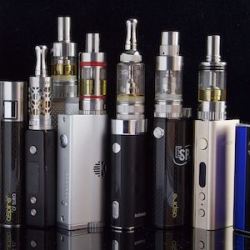Not that long ago, if a company had invented a far safer way to deliver nicotine to addicted smokers, politicians would be celebrating. Smoking is one of the leading preventable causes of disease and death in the world. If every smoker quit cigarettes today, we would have a healthier society, and healthcare costs undoubtedly would decrease. That's a win-win.
But today, partisanship has ruined just about everything. It has crept into nearly every aspect of American life, from the workplace and classroom to sporting events and even dinner table conversations. A good idea is rejected simply because the "other team" came up with it.
This is a terrible development for our culture. But it's even worse for areas such as public health, because people die when we implement bad ideas.
The Ideological War on Vaping
I knew something was amiss when I spotted an advertisement in a Seattle light rail car. The ad warned potential vapers not to be "fooled" by e-cigarettes, which it said were toxic, addictive, and unsafe. Yes, they are addictive (because they contain nicotine), but calling them toxic and unsafe is absurd. Compared to regular cigarettes, vaping devices are 95% safer, according to the UK's NHS.
In other words, if Seattle smokers follow their own public health department's advice, they are likelier to die. Why on earth would a public health department give such terrible advice? Because the debate over vaping isn't about science; it's about ideology.
That ideology now has been adopted by high-profile, highly partisan members of the U.S. Senate. Senator Chuck Schumer just announced that the FDA should ban "kid-friendly" flavors produced by JUUL and other e-cigarette companies. And Senator Dick Durbin said that vaping "doesn't guarantee any end to tobacco addiction." Sen. Schumer's position is mostly meddlesome nannying, but Sen. Durbin's position is a flat-out lie. The data show that cigarette use is declining in America.
What About the Children?
Without a doubt, e-cigarettes or other vaping devices should not be sold to children. Period. FDA Commissioner Scott Gottlieb said, "[W]e will not tolerate the sale of any tobacco products to youth." And he means it. The FDA is cracking down on companies who violate this policy. Yet, the anti-vaping hysteria continues.
Yes, it is true that some kids will get their hands on e-cigarettes, just like they will get their hands on alcohol, regular cigarettes, and pot. No matter what we say, some kids are going to try many of those things. If abstinence-only eduction doesn't prevent all hormone-fueled teenagers from having sex, then it's not going to stop all rebellious teens from drinking or vaping. Pretending otherwise is naive public health policy. Worse, our concern for "the children" is holding back a technology that can be used to get adult smokers to quit cigarettes.
Partisanship is the true toxin we need to worry about. Don't let it infect public health.

